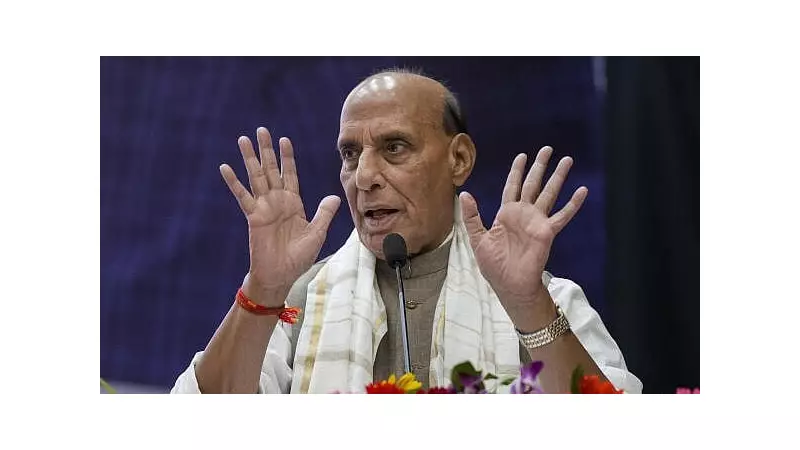
Defence Minister Rajnath Singh has positioned robust trade growth as the cornerstone of India's economic advancement, asserting that expanding global commerce is crucial for the nation's journey toward becoming a developed economy by 2047.
Economic Vision for a New India
Speaking at a recent industry event, Singh emphasized that enhancing trade volumes and diversifying export baskets would create a ripple effect across the entire economic ecosystem. "When trade flourishes, it doesn't just benefit large corporations but creates opportunities for MSMEs, generates employment, and strengthens our currency," the Defence Minister stated.
The Atmanirbhar Bharat Advantage
Singh powerfully connected the dots between his flagship Atmanirbhar Bharat (Self-Reliant India) initiative and international trade success. "Self-reliance isn't about isolationism," he clarified. "It's about developing such competitive capabilities that Indian products become the first choice in global markets."
The minister highlighted how India's growing manufacturing prowess, particularly in defence production, has transformed the nation from a major importer to an emerging exporter of sophisticated military equipment.
Defence Sector: From Import Dependence to Export Powerhouse
India's defence exports have witnessed an unprecedented surge, growing from approximately ₹1,900 crore to over ₹21,000 crore in just a few years. This remarkable achievement underscores the potential of focused policy implementation and public-private partnership.
Singh outlined several key factors driving this transformation:
- Strategic policy reforms encouraging domestic manufacturing
- Increased foreign direct investment in defence production
- Collaborative ventures between Indian and global defence companies
- Growing international confidence in Indian defence technology
Global Partnerships and Economic Diplomacy
The Defence Minister stressed that economic partnerships are becoming central to India's diplomatic engagements. As the country strengthens trade ties with nations across Asia, Africa, Europe, and the Americas, it simultaneously enhances its strategic positioning on the global stage.
"Our trade relationships are evolving into comprehensive economic partnerships that include technology transfer, joint research initiatives, and collaborative manufacturing," Singh noted, pointing to recent agreements with countries like the United States, France, and Israel.
Roadmap for Sustainable Growth
Looking ahead, the minister outlined a multi-pronged approach to sustain economic momentum:
- Continuing reforms to improve ease of doing business
- Investing in infrastructure to reduce logistics costs
- Promoting innovation and research across sectors
- Developing specialized industrial corridors and manufacturing hubs
- Strengthening trade agreements with key economic partners
Singh's vision presents a clear trajectory where domestic capability building and international trade expansion work in synergy to propel India into its next phase of economic development. As the nation continues to implement this dual-track strategy, the world watches what could become one of the most remarkable economic transformations of the 21st century.





